Entertainment
A Deep Dive into “Wayne’s Gun” with Creator Olga S Popova
Published
11 months agoon

Sitting down with composer Olga S Popova, you’re immediately struck by her thoughtful approach to music and storytelling. Despite her considerable achievements, she speaks with genuine humility about her latest project. The composer has just released “Wayne’s Gun Part 1: 1924,” the first installment of her groundbreaking time-travel musical project. The album, which brings together more than 150 artists from across 10 countries, offers a fresh take on musical storytelling that defies easy categorization.
On a sunny afternoon in March, just days after the album’s release, we sat down with Popova to explore the journey that led to this unique fusion of steampunk, classical, and contemporary styles.
Let’s start at the beginning. How did your musical journey unfold?
Popova’s eyes light up as she recalls her early years: “I’ve been surrounded by music for as long as I can remember. Growing up in Moscow, I was naturally drawn to the piano, and by the time I could reach the keys, I was already trying to improvise melodies. My parents recognized my passion early on and enrolled me in the Central Music School of the Tchaikovsky Conservatory where I studied classical piano and composition. By the time I was nine I was already performing as a soloist at the Stanislavsky Music Theatre and at ten I won the Mozart Wunderkind Competition in Austria – an experience that made me realize just how much I loved being on stage and sharing music with others.”
“Wayne’s Gun” seems to embody that collision. What’s the story behind it?
“It’s really a story that doesn’t fit into just one box,” Popova explains, leaning forward with visible excitement. “We’ve got these two scientists, Mona Delancour and Simon Silicia III, who build this incredible time-traveling zeppelin. But when they actually use it…” she pauses, choosing her words carefully, “everything goes wrong. Reality itself starts breaking down. And as they try to put history back together, they start to lose touch with their own humanity.” She smiles and sits back, “I probably shouldn’t say too much more about where it goes from there – I want to leave some surprises for people to discover themselves. But let’s just say it’s steampunk meets sci-fi meets historical drama, and at its heart, it’s about what happens when we push technology too far.”
Tell us about the new album release.
The seven-track album clocks in at about 21 minutes, but every second counts. “We were incredibly fortunate to work with some amazing talents,” Popova notes, “including five-time Billboard nominee Luis Canción, who’s worked with Snoop Dogg and Lecrae, and Romano Eraffici from Universal Music Poland. Their expertise really helped us strike that perfect balance between theatrical complexity and accessible storytelling.”
The project has evolved quite a bit, hasn’t it?
“It’s been quite a journey,” Popova reflects. “We premiered in Moscow to a packed house on December 18, 2021, and then made our U.S. debut at Boston’s Jackson Browne Stage in April 2022. The response has been incredibly encouraging – especially from industry veterans like Elvira Takha, who choreographed ‘Cats’ and ‘Mamma Mia!’ and Broadway director Eric Stern. Watching it grow from a stage production into this multimedia initiative has been surreal.”
Your portfolio extends beyond “Wayne’s Gun” – what other projects have shaped your career?
Popova nods thoughtfully. “I’ve been fortunate to work on diverse projects, from Disney’s ‘Dr. Jane Goodall’ documentary to the animated series ‘Ginji.’ Founded and managed the Excelsior Orchestra in Russia, which was an incredible learning experience. And performing at Carnegie Hall NYC, where I received a Golden Classical Music Award – that was a dream come true for the classical pianist in me.”
What’s on the horizon for “Wayne’s Gun”?
“Parts 2 and 3 of my musical are on the way, and it’s going to get even crazier!” Popova shares enthusiastically. “I’m also working on new film and theatre projects, as I return to the industry worldwide. I’m thrilled to share that I’ll be performing live with an orchestra under the direction of Jordan Conover—a truly exciting experience that will bring my music to life in a way that only an orchestra can.”
What have you learned through this creative journey?
“One thing I’ve learned over the years is the importance of patience in the creative process,” Popova reflects thoughtfully. “Music, like life, doesn’t always unfold on our timeline. Sometimes, the ideas take longer to materialize, and the pieces don’t always come together as quickly as you’d like. But every step, every delay, and every challenge is part of the journey.”

“Wayne’s Gun Part 1: 1924” is now streaming on Spotify and Apple Music. Fans can follow Popova’s journey on Instagram, Facebook, or visit her official website for updates. As our conversation concludes, Popova’s parting wisdom resonates: “Trust your vision, be patient with yourself, and allow your work to develop at its own pace. In the end, the results will always be worth the wait.”
This article contains branded content provided by a third party. The views expressed in this article are solely those of the content creator or sponsor and do not necessarily reflect the opinions or editorial stance of Popular Hustle.

You may like
-


Milovay Is Done Starting Over and Just Getting Started
-


Andre Correa’s New Single “Histórias” Explores How Stories Change in the Telling
-


Miixed Realities Proves Medical Billing Doesn’t Have to Be a Black Hole
-


GMDCASH Talks Comebacks, Jail Time, and Why He’s Just Getting Started
-
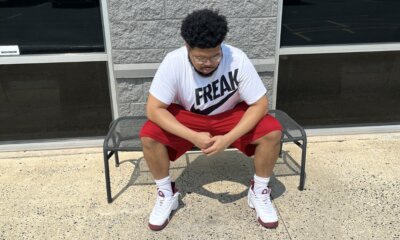

Meet Lil Deezull, the Cambridge Rapper Finding His Moment
-


Dennis Dewall Reboards the Spy Genre with International Thriller ‘THE TRAIN’
Entertainment
Milovay Is Done Starting Over and Just Getting Started
Published
1 day agoon
February 28, 2026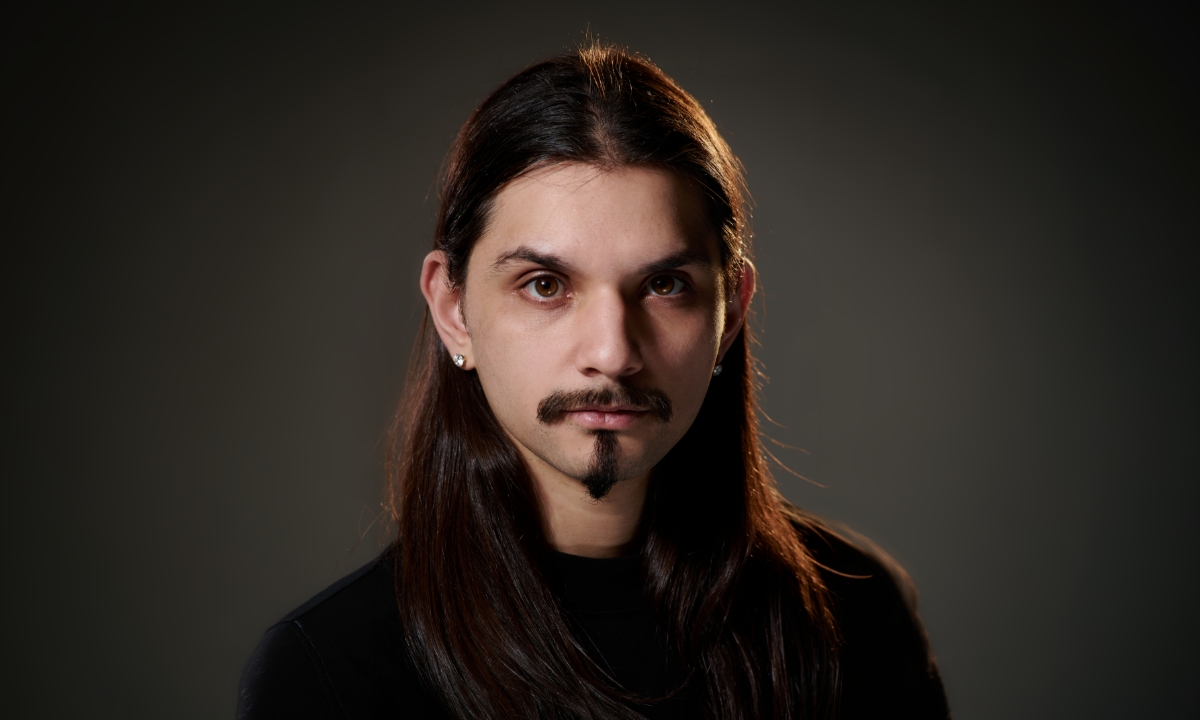
There’s a version of Brandon Serrano that never would’ve landed this article. He spent years pushing names that weren’t working, watching his friends hype him up while the numbers refused to move. It took him a while to figure out the problem wasn’t the music. It was everything around it.
Now he goes by Milovay, and the difference is pretty obvious once you hear the self-titled EP he dropped February 20th.
The four-track project clocks in just under 13 minutes, but it doesn’t feel rushed or underdeveloped. “Finally Open,” “Silver Lining,” “Battle of the Two-Heads,” and “What I Need” each hold their own weight, and the sequencing gives the thing a genuine arc. That’s harder to pull off in a short format than people think. A lot of artists cram four songs together and call it an EP. Milovay actually built something.

The Worcester, Massachusetts native’s R&B and Afro-fusion sound pulls from a pretty specific but interesting set of influences. He’ll tell you Tech N9ne got him hooked on music as a teenager, the speed rapping, the engineer involvement, the obsessive fan connection. But the vocal style owes more to Tory Lanez, that raspy-to-high register range with layered harmonies underneath. It’s a recognizable template, but Milovay doesn’t just ape it. The execution feels considered, not borrowed. And “Silver Lining” is where that execution gets a visual to match it. The song itself is about that specific kind of overthinking that comes with trying to impress someone, not knowing if you’re giving too much or not enough, stuck somewhere between grand gestures and playing it cool.
The video, shot and edited by @trill_is_bliss and featuring co-star @tesqhila, plays that tension straight. There’s no melodramatic breakup, no fantasy sequence. It’s the uncomfortable middle ground the song is actually about, wanting to go all in but second-guessing every move. That’s a harder thing to visualize than heartbreak, and it works.
This is his second EP in just a few months. He dropped “The Lost Scripts of Phenoxism” back in December 2025, and the new one clearly goes in its own direction. That kind of output discipline is notable. Short-form projects released consistently are the current play for independent artists trying to stay relevant without burning through a full album rollout budget, and Milovay seems to genuinely understand the logic of it rather than just following a trend.
He’s also pretty candid about the rebranding process. Years under names that weren’t working, surrounded by yes-people who convinced him the problem was elsewhere. It’s a familiar story in independent music, maybe more common than people admit. What’s worth noting is that he doesn’t frame the past as wasted time. “Peregrine,” “Punani Papi,” all of it, he sees as part of what built him. The willingness to own every version of yourself instead of pretending they didn’t happen is actually rarer than the rebrand itself.
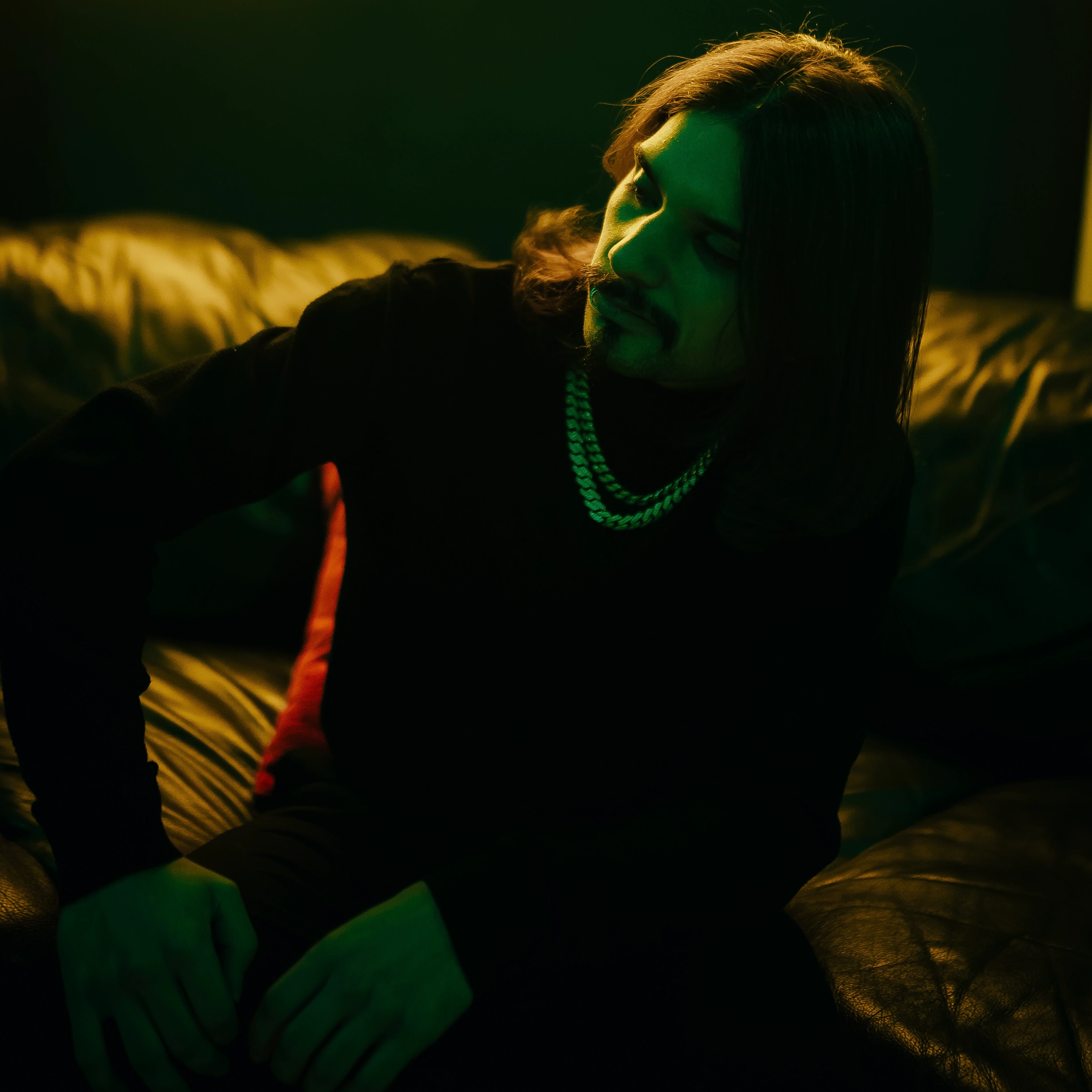
“There is no deadline to make it in this industry,” he said. “I could be 41 and still make moves as if I’ve been doing this for X amount of years.” He means it. Part of what changed is practical too. He talks about finally understanding how to navigate blogs, push his releases correctly, and use social media as an actual tool rather than an afterthought. For independent artists in 2026, that gap between talent and platform literacy is where careers stall. Milovay figured out which side of that gap he needed to close.
Right now the focus is purely on releasing and promoting. No tour dates, no spoilers on what’s coming this summer, though he hints it’ll be worth paying attention to. For a catalog that’s only a few months old under the current name, there’s already a real foundation here.
You can follow Milovay on YouTube, Instagram, and stream his music on Spotify, Apple Music, and SoundCloud.
Entertainment
Andre Correa’s New Single “Histórias” Explores How Stories Change in the Telling
Published
4 weeks agoon
February 2, 2026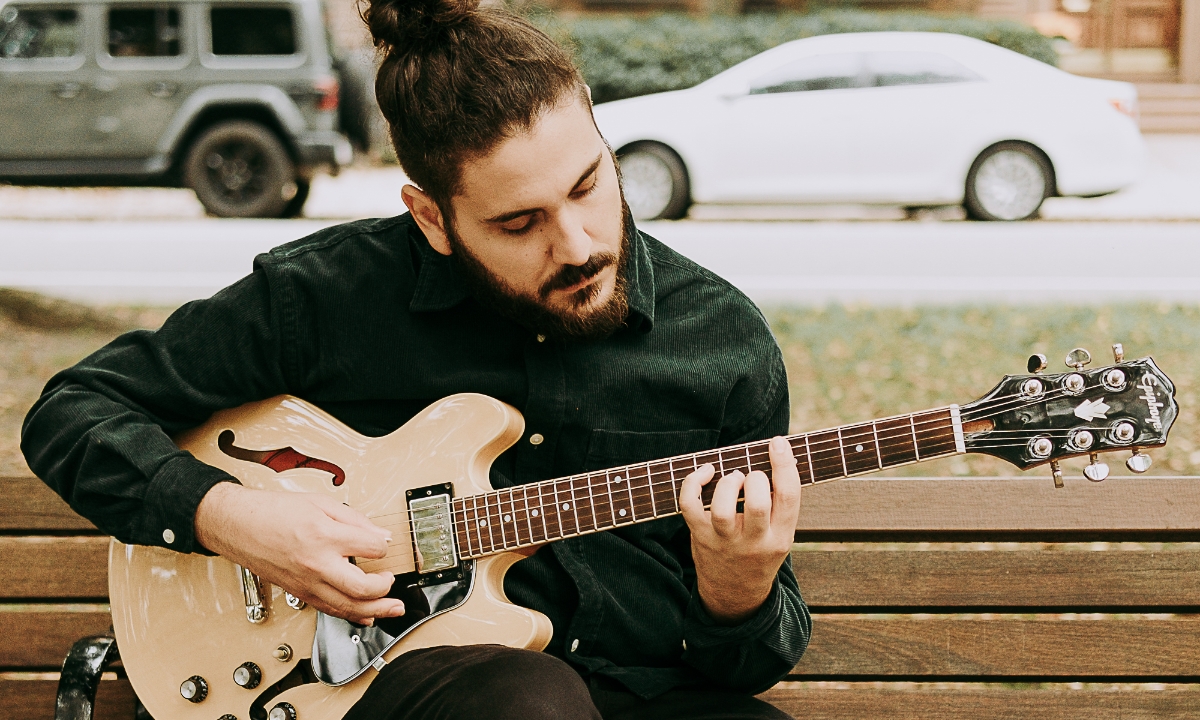
The best instrumental music makes you feel something you can’t quite name. Brazilian guitarist Andre Correa’s new single “Histórias” works like that, building a narrative without a single word by exploring how stories transform as they pass between people.
The track, which translates to “Stories” in English, draws from baião and fusion to create something that unfolds like a conversation you’re overhearing. Correa structured the composition around the concept of a game of telephone, where a single idea gets reinterpreted through different emotional filters until it returns to something clearer than where it started. The piece swells and contracts, moving through restlessness and conflict before landing somewhere more settled and direct.

“The work invites the listener to create their own interpretation,” Correa explains. “Each person hears a different story within the same music.”
It’s a fitting approach for a guitarist who treats composition as personal archaeology. Correa, a Berklee College of Music graduate now based in Orlando, doesn’t start with theory or structure when he writes. He starts with whatever he’s actually living through, picking up his guitar and trying to translate feeling into sound. One idea leads to another until the piece reveals its own direction. “I only feel comfortable when I can see the full picture and everything feels cohesive, like the music is telling one clear story,” he says.
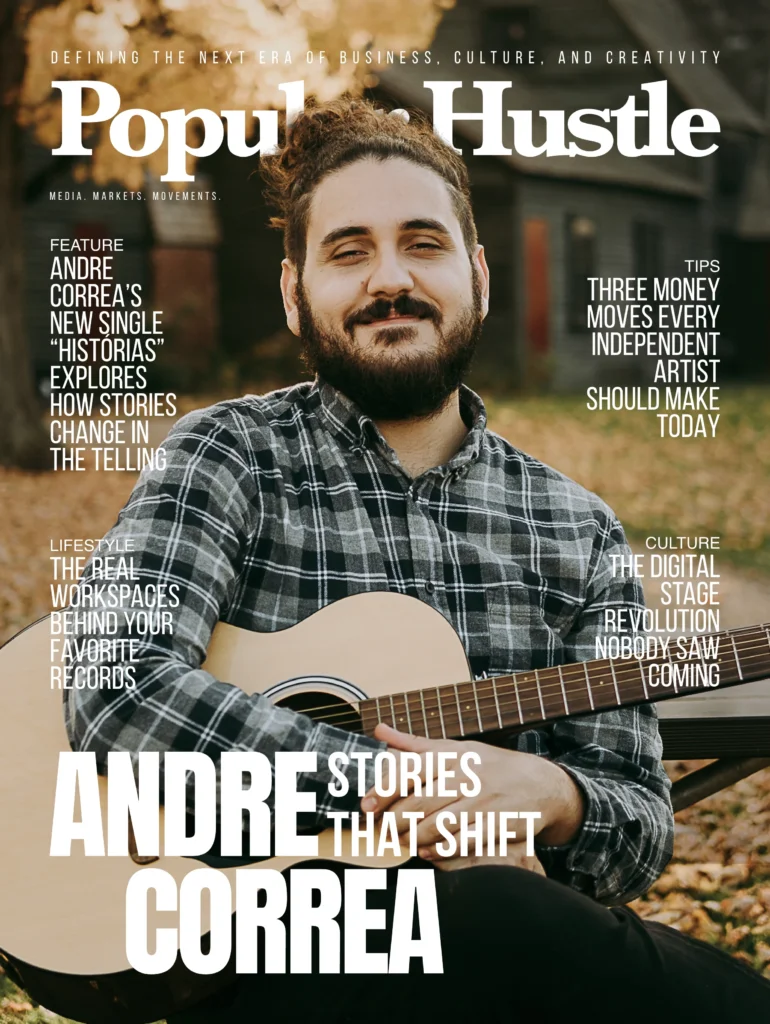
That process shaped his debut album “Seasons,” released November 29, 2025, which documents his years in Boston through seven original tracks. But “Histórias,” releasing in 2026, pushes further into abstraction, examining not just personal experience but the nature of how experience gets communicated and distorted over time. Multiple musical “voices” emerge from a single theme, creating layers that explore the relationship between noise, interpretation, and truth.
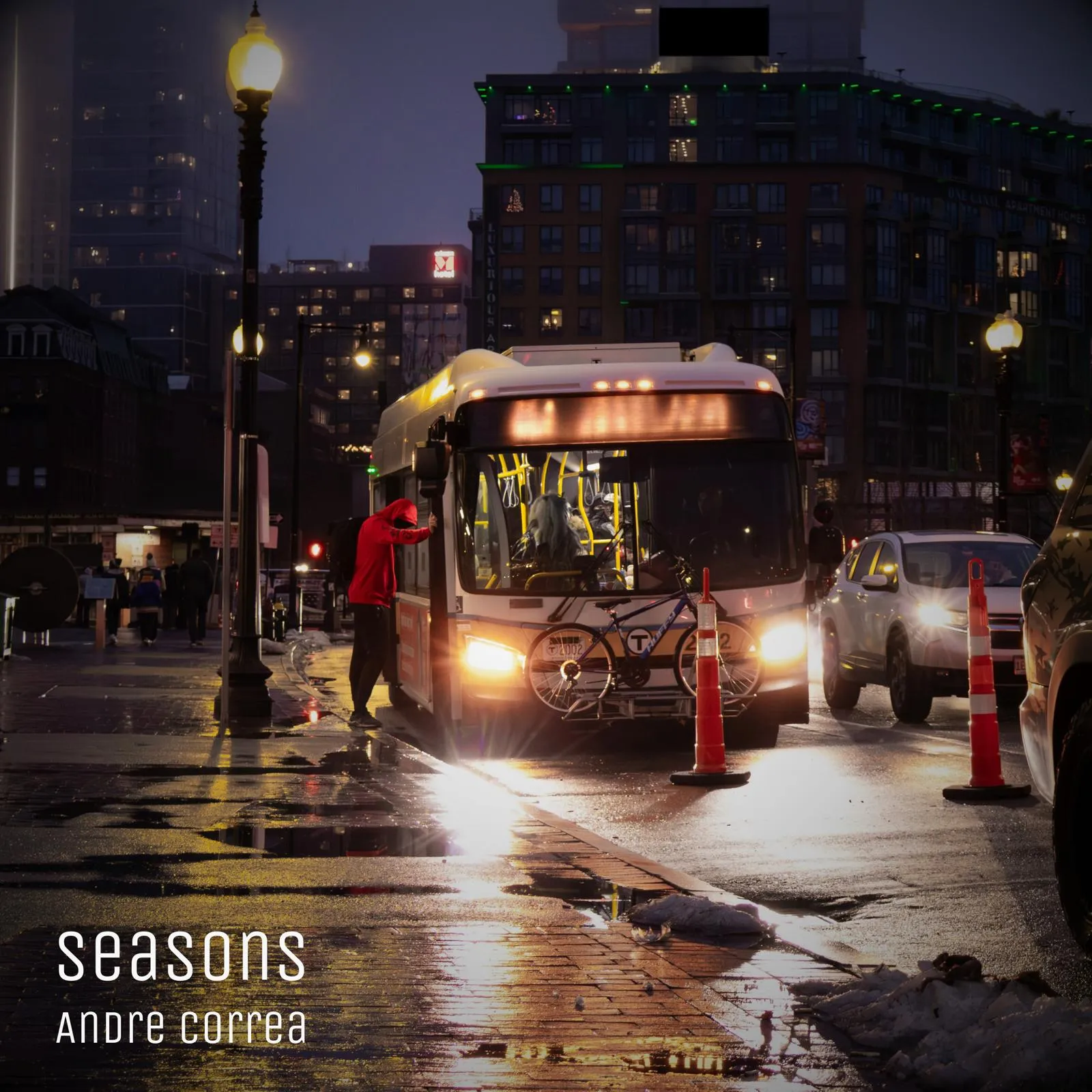
Correa was born in Valinhos, São Paulo, and raised in Campinas, learning keyboard from his father at eight before picking up guitar at twelve. Playing in church communities taught him early that music works best as service rather than spectacle, a belief that stuck through his formal training at Berklee, where he studied with faculty including Danilo Pérez, John Patitucci, and Randy Roos. His time at the Berklee Global Jazz Institute took him into hospitals and rehabilitation centers, reinforcing his sense that music exists to create space for something meaningful to happen.
The immigrant experience of rebuilding life in the United States has informed his writing as much as any classroom. Moving countries, learning to navigate unfamiliar systems, processing the particular loneliness of starting over in a new place: all of it feeds into work that prioritizes emotional honesty over technical display.
“I don’t think of my work as just songs or compositions,” Correa says. “I think of each piece as a small narrative, a space where melody, harmony, rhythm, and improvisation work together to express something human: faith, doubt, change, longing, gratitude, conflict, hope.”
Beyond his recording projects, Correa is preparing to launch an educational book series called “The Ultimate Guide,” with the first volume, “Major Pentatonic: The Ultimate Guide,” scheduled for release in January 2026. The series applies his FCA Method, a framework focused on helping guitarists develop their own musical identity rather than just memorizing patterns. He currently performs regularly at Jazz Tastings in Orlando, where he develops his sound and refines his artistic direction in a live setting.
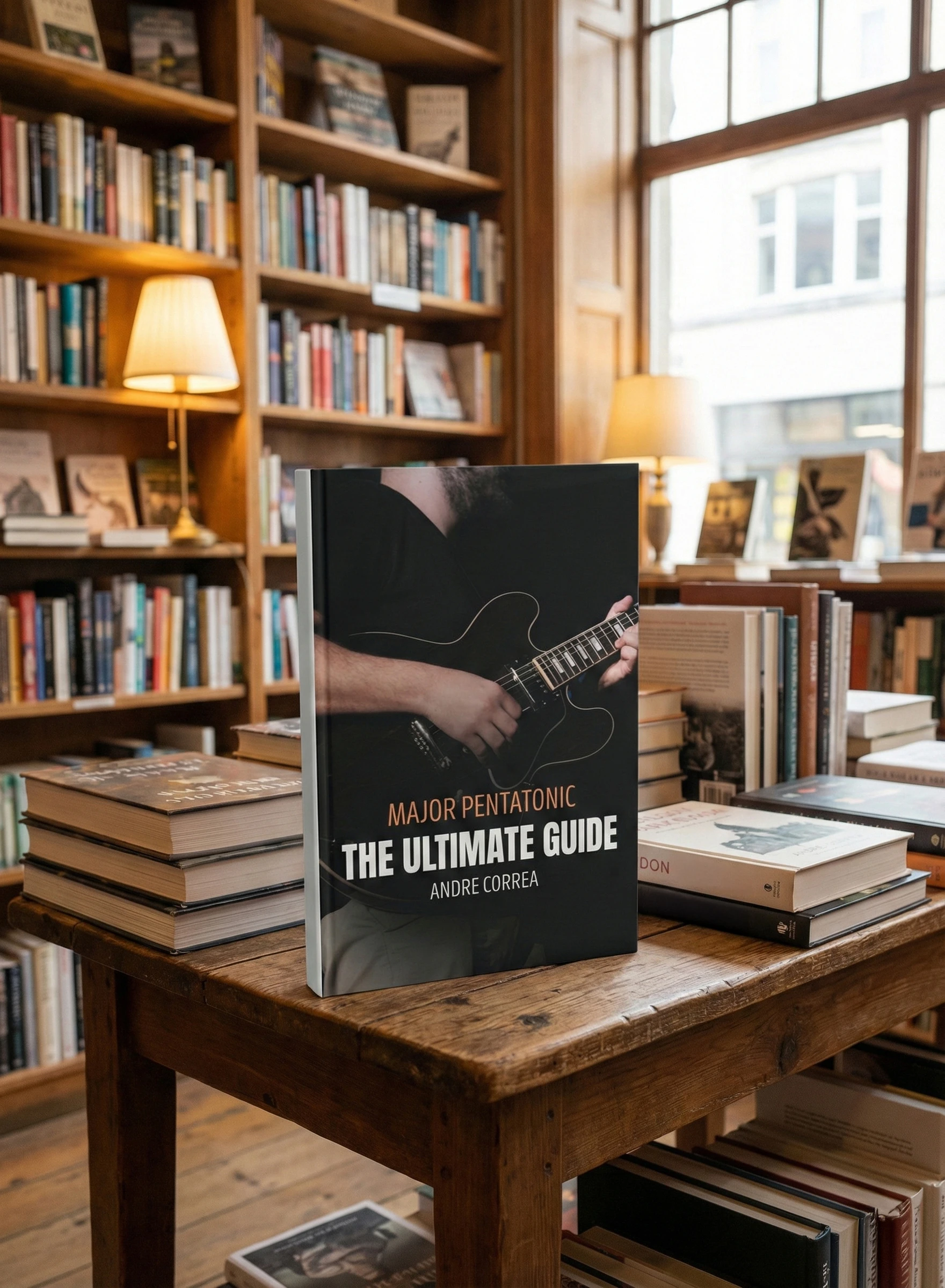
Correa isn’t chasing anything grand with his music. If someone walks away feeling a little more present, a little more honest with themselves, or simply more connected to their own emotions, he figures the work has done what it was supposed to do.
“Histórias” rewards that kind of attention. The track doesn’t demand you understand it on first listen. It just asks you to sit with it long enough to find whatever story you needed to hear.
Stream Andre Correa’s music on Spotify and Apple Music, and follow his work on Instagram, YouTube, Facebook, TikTok, and LinkedIn. Visit his website for more.
Entertainment
GMDCASH Talks Comebacks, Jail Time, and Why He’s Just Getting Started
Published
1 month agoon
January 19, 2026
Some artists talk about grinding. Others actually live it. Calvin Davenport, better known as GMDCASH, falls squarely into the second category. The Seattle-born rapper has navigated the kind of obstacles that would make most people quit, including incarceration, legal restrictions on his content, and the predatory side of an industry that loves to take advantage of independent artists. He’s still here, though, and with previous coverage in outlets like Earmilk and The Source already under his belt, his recent output suggests he’s figured out how to turn setbacks into fuel.
His latest single “Bump A Whore Pt. 2,” released January 16th, 2026, sees him team up with MikeJack3200 and Frostydasnowmann for a polished follow-up to the original. But it was his comeback track “I’m The Product,” dropped at the top of the year, that set the tone. That title isn’t just a song name. It’s a thesis statement. The track positions GMDCASH as someone who’s done waiting for opportunities to find him. Instead, he’s become the opportunity. With a new EP on the way, he’s building momentum on his own terms.
We caught up with GMDCASH to talk about what drives him, how he creates, and what’s next.
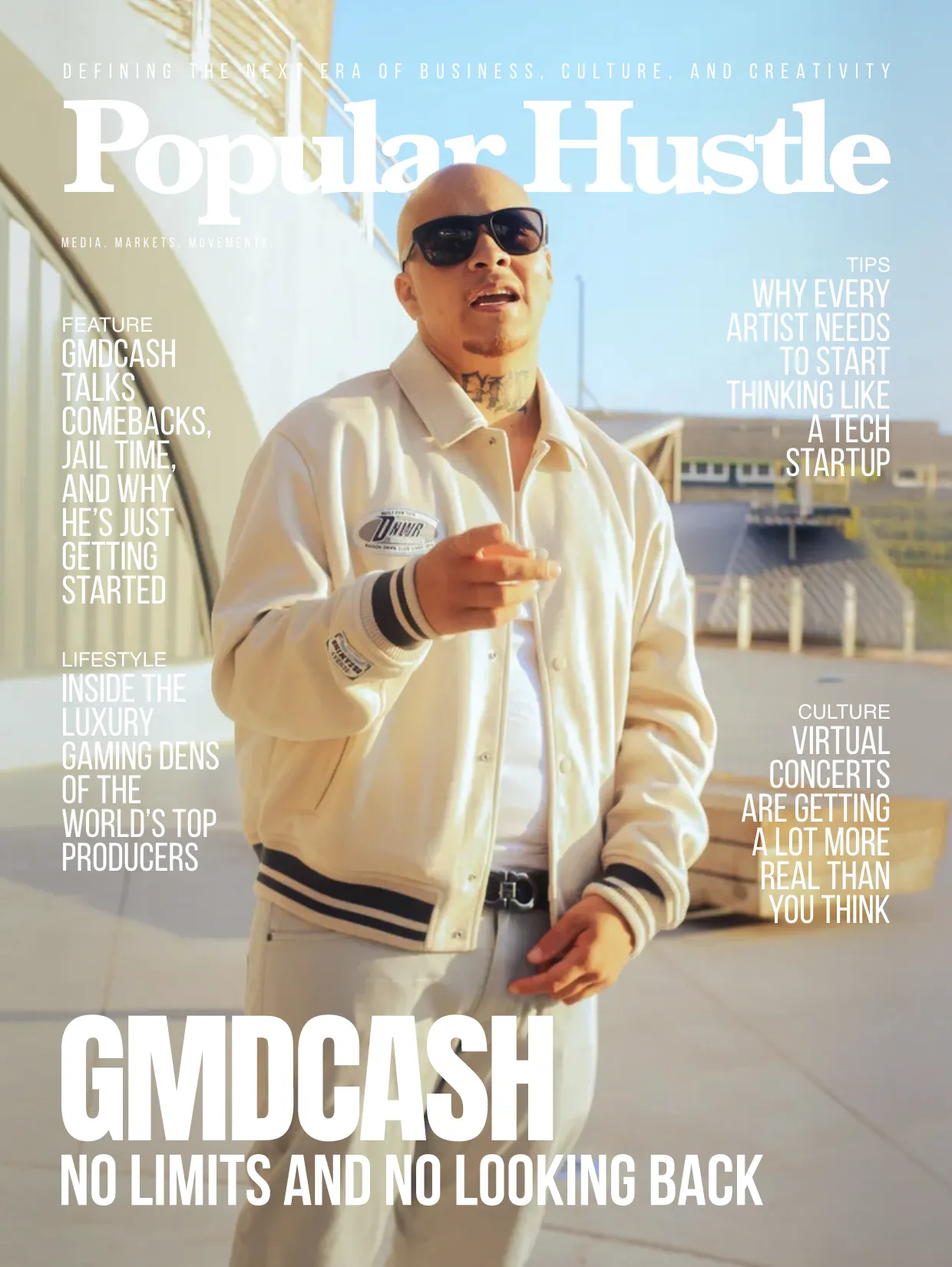
Take us back to a specific moment when you knew this was what you were going to do. What happened?
I think after getting out of jail I geared my focus towards my music career. I really needed a positive outlet, something that woke me up, drove me, and inspired me and the people around me. Music did that for me.
If someone’s never heard your music before, how would you describe what you do?
I would say my music is for everyone. I have a pretty big catalog and it’s forever expanding, so if you don’t hear something you like, check back every now and again. I’m sure something will catch your ear. And if not, it’s more than music. It’s my life story. I want people to be inspired by my music. I want people to hear it and know that anything is possible.
Who or what shaped your creative voice the most?
My family is a big part of my influence. Both my parents and some of my family members have been in the industry. Growing up in a musical household is number one. I have a unique style. I couldn’t say one thing shaped my creative voice, and I feel like my creativity is forever changing every time I’m in the studio.
Walk us through how you actually create.
Honestly, I book a session and spend four hours minimum in the studio. Sometimes I don’t even book. I’ll just feel something and call a studio and get to work. Most beats are made as soon as I pull up. The producer gives me the sample, I approve, he starts the loop. Most of my lyrics are life experience, so it’s not hard for me to make a song. I just rap how I’m feeling. Sometimes it’s a smooth process, others take time. Then they mix and master and I schedule the release.
What’s something you had to figure out the hard way?
I think going to jail at the end of the year was really a wake up call. I have to protect myself and keep people around me who want what’s really best for me, not just have anyone around me.
Is there anyone you’d love to work with down the line?
I really would like to collab with Hurricane Wisdom.
Where are you at in your music career right now?
This is just the beginning. I feel there’s so much more to come. Music is my passion. I don’t think I’m leaving the mic anytime soon.
What are you working on that you’re excited about?
I’m excited for my next EP coming out early this year. I focused on songs with uplifting, positive energy and the GMD, Get Money Daily, vibe. I’m hoping to do at least two shows before the middle of the year. I’m just excited about the possibility of the new year and all the good things it has to bring.
If there’s one thing you want readers to take away from this feature, what is it?
I’m an up and coming Seattle rapper. Check out my music, be inspired, follow my page, interact, share your thoughts.
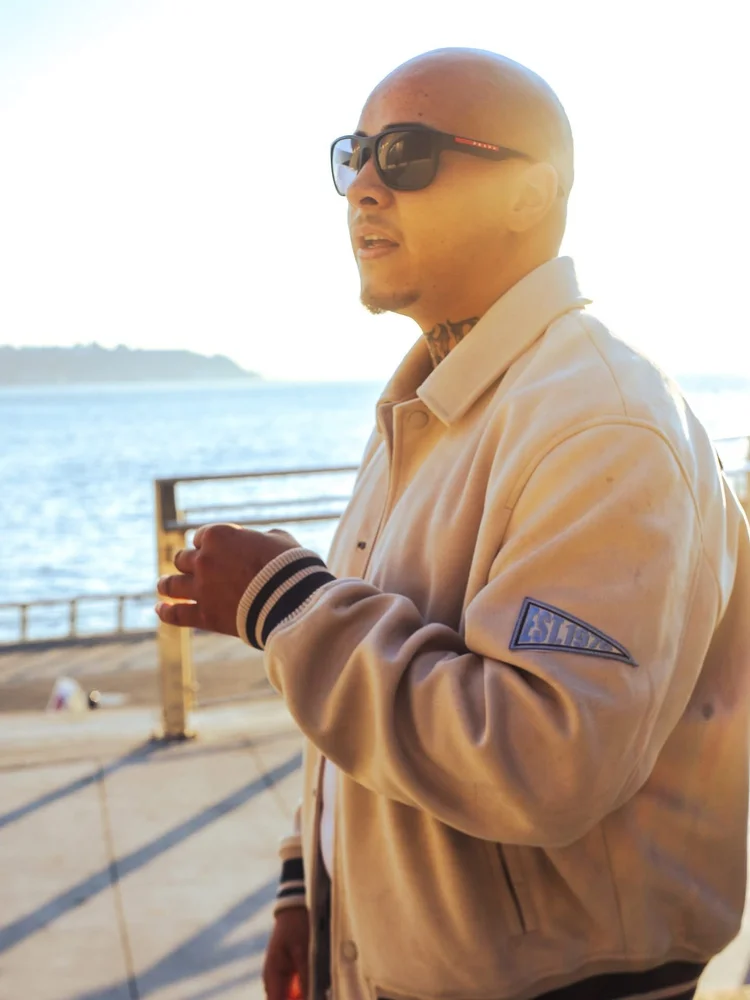
What stands out about GMDCASH isn’t the adversity itself. Plenty of artists have tough stories. It’s the clarity that came out of it. He’s not chasing validation or waiting for a label to cosign his vision. Beyond music, he has plans to move into artist management and eventually relocate abroad. For listeners who connect with authenticity over polish, that long-term thinking is the whole point.
Stream GMDCASH on Spotify, Youtube, and Apple Music, visit his official website, and follow him on Instagram.



Milovay Is Done Starting Over and Just Getting Started

Andre Correa’s New Single “Histórias” Explores How Stories Change in the Telling

Miixed Realities Proves Medical Billing Doesn’t Have to Be a Black Hole

GMDCASH Talks Comebacks, Jail Time, and Why He’s Just Getting Started

Meet Lil Deezull, the Cambridge Rapper Finding His Moment

Dennis Dewall Reboards the Spy Genre with International Thriller ‘THE TRAIN’

Saynt Ego on Grief, Mental Health, and Learning to Sit With the Noise

Marloma Talks Learning to Stop Writing in Isolation and Trust the Chaos

Zizzo World Is Building Momentum That’s Hard to Ignore

Yash Kapoor Wants His Records To Feel Like Moments, Not Just Music

Inside the Amazon Reinstatement Process: The aSellingSecrets Approach

Golden Bay Beach Hotel — A Luxury Beachfront Escape in Larnaca, Cyprus

Nodust Writes His Lyrics Last and That’s Exactly the Point

Finding Strength in Walking Away Is the Real Message Behind Judy Pearson’s New Single

Joaquina’s “Freno” Captures the Push and Pull of Letting Go

Jason Luv Dominates Charts While Inspiring New Wave of Multi Career Artists

Harley West | Inside the Mind of a Social Media Star on the Rise

Raw Fishing | Franklin Seeber, Known As “Raww Fishing” Youtuber Story

Jordana Lajoie Transforms Montreal Roots into Hollywood Success Story

A New Hollywood Icon Emerges in Madelyn Cline

Who is Isaiah Silva – The Story Behind The Music

Tefi Valenzuela Pours Her Heart into New Song About Breaking Free

G FACE Releases His New Single “All up,” and It’s Fire

Gearshift to Stardom: Nikhael Neil’s Revolutionary Journey in the Automotive Industry

Kaia Ra | Perseverance That Built a Best-Selling Author

Holly Valentine | Social Media Influencer & Star Success Story

Kate Katzman | Breaking Into Hollywood and Embracing Change

Thara Prashad | Singer Evolves to Yoga & Mediation Superstar

Tadgh Walsh – How This Young Entrepreneur is Making a Name for Himself

King Lil G | West Coast Hip Hop Genius Rises to Face With Ease

Tefi Valenzuela Pours Her Heart into New Song About Breaking Free

Kate Katzman | Breaking Into Hollywood and Embracing Change

Holly Valentine | Social Media Influencer & Star Success Story

Kaia Ra | Perseverance That Built a Best-Selling Author

Lil Ugly Baby XXX’s “Who?” – The Mixtape to Boost Your Playlist

Samuel Chewning Explains How Fitness Should Be A Personal Journey

Trending
-

 Business4 years ago
Business4 years agoJason Luv Dominates Charts While Inspiring New Wave of Multi Career Artists
-

 Entertainment3 years ago
Entertainment3 years agoHarley West | Inside the Mind of a Social Media Star on the Rise
-

 Culture4 years ago
Culture4 years agoRaw Fishing | Franklin Seeber, Known As “Raww Fishing” Youtuber Story
-

 Culture3 years ago
Culture3 years agoJordana Lajoie Transforms Montreal Roots into Hollywood Success Story
-

 Culture2 years ago
Culture2 years agoA New Hollywood Icon Emerges in Madelyn Cline
-

 Entertainment1 year ago
Entertainment1 year agoWho is Isaiah Silva – The Story Behind The Music
-

 Entertainment3 years ago
Entertainment3 years agoTefi Valenzuela Pours Her Heart into New Song About Breaking Free
-

 Culture4 years ago
Culture4 years agoG FACE Releases His New Single “All up,” and It’s Fire

